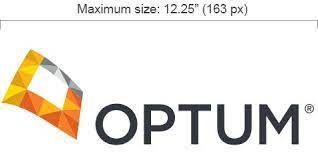- Bone Health
- Immunology
- Hematology
- Respiratory
- Dermatology
- Diabetes
- Gastroenterology
- Neurology
- Oncology
- Ophthalmology
- Rare Disease
- Rheumatology
Study: Investigators Report Superior Adherence, Savings for Biosimilars
Weaker persistency and strong adherence were observed among patients taking biosimilar forms of epoetin alfa and infliximab, among others.
Investigators found inferior persistency among patients who used biosimilar vs originator forms of infliximab (Remicade) and epoetin alfa (Epogen/Procrit), although they said adherence was superior among patients on biosimilars included in the study, according to a poster presentation at AMCP 2021.
Investigators conducted a retrospective study using patient information culled from the Optum specialty pharmacy database, representing a 2-year period from January 2018 to December 2019. Investigators defined persistency as “continuation of treatment for the prescribed period” and adherence as the patient acting in accordance with prescription intervals and prescribed dosage.
The percentage of patients who remained on biosimilar infliximab dipped below 20% by the fifth prescription fill, whereas the percentage who remained on the originator product remained above 20% by at least the ninth fill, according to study authors.
The percentage who remained on epoetin alfa biosimilars dipped below 40% around the third fill, whereas patients on the originator did not dip below the 40% line until the fifth fill.
For patients treated with filgrastim and pegfilgrastim biosimilars, the persistency curves were slightly inferior to originator persistency, although these differences were not considered statistically significant. “Patients in reference drugs had higher persistence at every fill compared to biosimilars. However, significant difference in persistency was seen only between the Remicade and Epogen/Procrit groups,” the authors wrote.
However, when it came to adherence, patients in all therapy groups studied adhered better to biosimilars than reference products and had lower out-of-pocket costs if they used biosimilars, the authors wrote.
For example, adherence for patients on Inflectra and Renflexis, both biosimilars of Remicade, had 93% vs 90% adherence, respectively. The comparable figures for patients on filgrastim biosimilar (Zarxio) vs originator (Neupogen) were 81% and 60%; pegfilgrastim biosimilar (Udenyca, Fulphila) vs Neulasta, 93% vs 86%; and epoetin alfa biosimilar (Retacrit) vs originator (Epogen/Procrit), 88% vs 83%.
The largest per-fill out-of-pocket differences were seen for filgrastim biosimilars vs filgrastim originator ($102 vs $383) and pegfilgrastim biosimilars vs originator ($79 vs $376).
A higher incidence of adverse events was reported for patients on biosimilars for all groups except pegfilgrastim; however, investigators said they were unable to evaluate or categorize adverse events according to severity.
“The findings of this study reflect the positive real-world implications of utilizing biosimilars from a cost-adherence standpoint,” the authors wrote.
The data from the study were obtained from Optum and Avella Specialty Pharmacy, which was acquired by Optum in 2018. “Data collected from only 1 specialty pharmacy may not represent the general population in the United States,” investigators said.
Reference
Shah K, Lawler L. Real world evidence: impact of biosimilars on patient outcomes at a specialty pharmacy. Presented at: AMCP 2021; April 12-16, 2021. Accessed April 19, 2021. https://amcpannual2021.pathable.co/organizations/Yxzi8AFuWFPvqnPR2#/?limit=10&sortByFields[0]=isPinned&sortByFields[1]=lastActivityAt&sortByOrders[0]=-1&sortByOrders[1]=-1&uid=pAcLoMw6BXog7ypr6
Newsletter
Where clinical, regulatory, and economic perspectives converge—sign up for Center for Biosimilars® emails to get expert insights on emerging treatment paradigms, biosimilar policy, and real-world outcomes that shape patient care.

